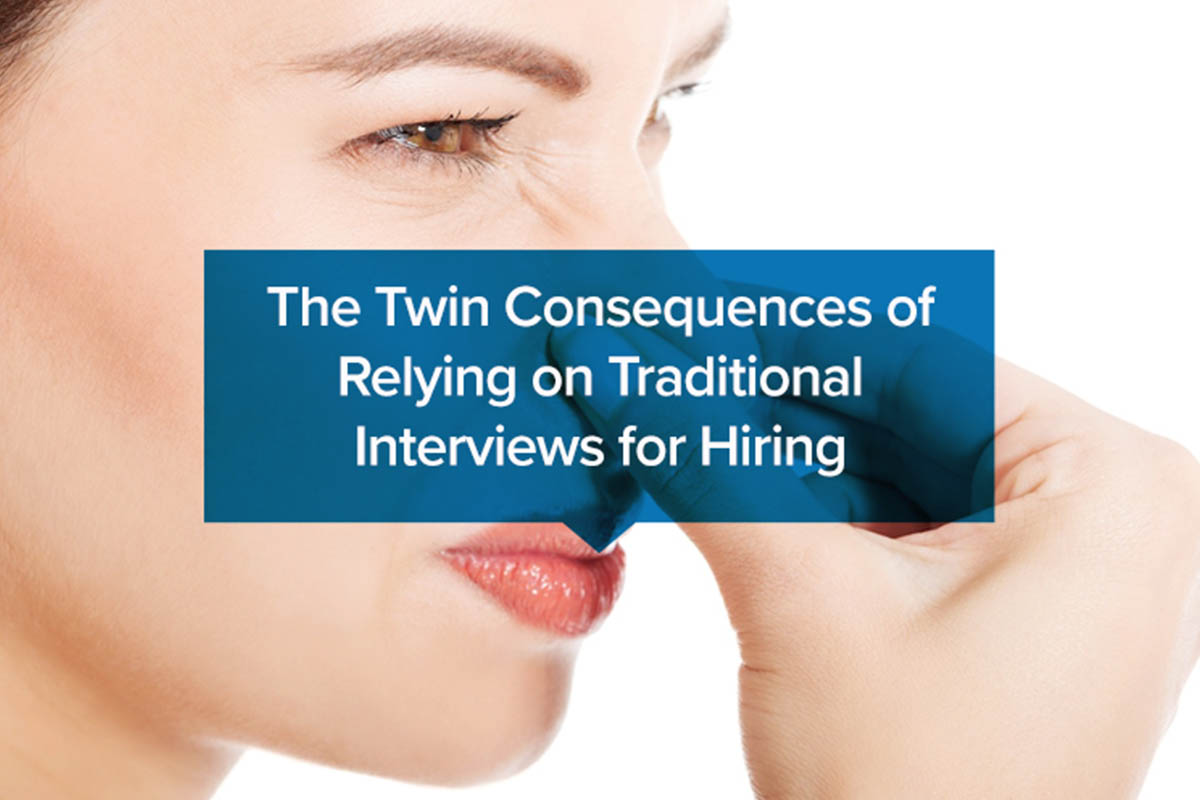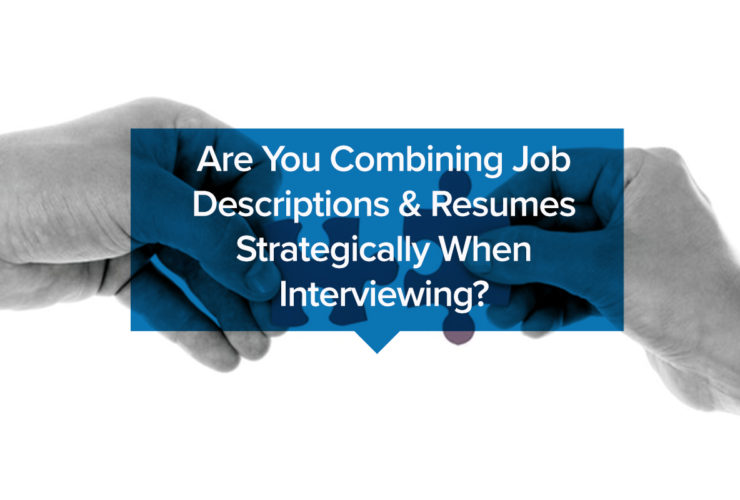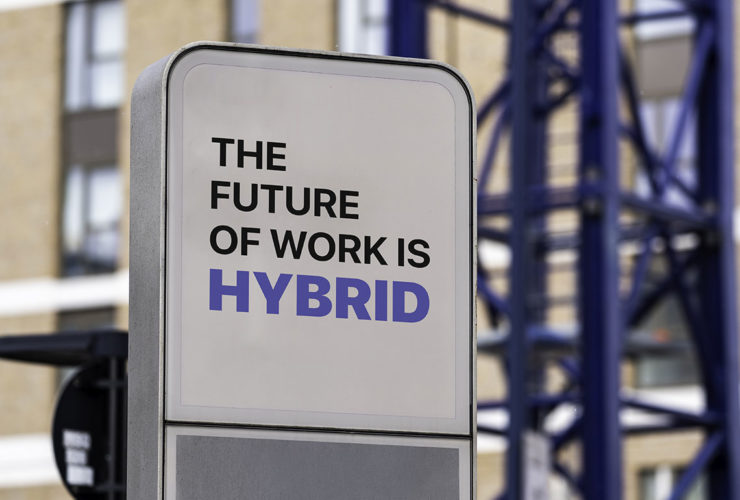The title of a recent New York Magazine article declared, “Job Interviews Are a Terrible Way to Find the Right Candidate.”
The article’s criticism of job interviews: “We see what we want to see. We’re great at quickly forming first impressions, but we’re pretty terrible at changing our minds when new information comes in after the fact.”
Research largely backs this criticism up. A 2014 CareerBuilder survey found that nearly half (49%) of employers know within the first five minutes of an interview whether a candidate is a good or bad fit for a given position, while 87% know within the first 15 minutes. A 2015 study in the Journal of Occupational and Organizational Psychology, meanwhile, found that 60% of interviewers made their hiring decision within the first 15 minutes, a somewhat lower but still significant portion.
The Twin Consequences of Relying on First Impressions in Hiring
There are twin consequences of relying on job interviews driven by first impressions.
- Bad hires—personality, not job suitability, drives hiring decisions
As the New York Magazine article points out, interviewers are drawn to candidates whom they like—typically those with strong personal, aka “soft” skills. Soft skills have value in the workplace, but candidates must have aptitude in technical and other skills that are necessary to succeed at a given role, or they’ll end up as bad hires.
- Less diverse candidates tend to be hired
In addition to bad hires, relying on job interviews leads to biased hiring. The reason: Interviewers are drawn to candidates who are like them. The same gender, the same ethnicity, the same sexuality, the same background, the same interests, etc. This leads to fewer opportunities for diverse candidates, but also contributes to lower performance and creativity and less innovation for employers, as there is less thought diversity.
How Can Employers Avoid These Consequences?
Employers can take a number of actions to mitigate these twin consequences, including:
- Educating hiring managers and other interviewers about interviewing biases.
- Instituting diversity and inclusion programs, and sticking to them.
- Using screening tools (reference checks, background checks, skills assessments, intelligence assessments, etc.) aggressively to filter out candidates who aren’t good fits—before the job interview stage.
The Extra Action for Tech and IT Hiring
Technical skills and experience are especially critical for new hires to succeed in tech and IT hires. While a sales person might succeed based on their interpersonal skills, having stellar soft skills isn’t enough in tech. You must have technical chops.
As a result, it’s critical that employers NOT rely on first impressions from traditional interviews for making tech and IT hiring decisions. Of course, tech and IT don’t have the best reputation for diversity, which is another reason not to rely primarily on traditional interviews.
Fortunately, in addition to the screening tools available for filtering out candidates for other positions, in your tech and IT hiring, you have another powerful tool: the technical interview. Technical interviews evaluate whether candidates have the necessary technical skills and experience to perform a given job. Best performed as the last step in the candidate screening process, before candidates are delivered to hiring managers, technical interviews weed out the technically unqualified. Three of the benefits of technical interviews are:
- Better return on interview for hiring managers—they don’t waste their time interviewing unqualified candidates.
- Better hiring quality—even if hiring managers’ final hiring decisions are guided by their first impressions, they’ll still be hiring qualified candidates.
- Improved hiring diversity—your gender, ethnicity, sexuality, etc. don’t matter in technical interviews, as they focus on skills and experience, not personality and cultural fit.
Just how big of a difference can technical interviews make? According to a landmark University of Notre Dame study, technical interviews are 5.5 times more predictive of future on-the-job behavior than traditional interviews.
Take a Multi-Faceted Approach
Ultimately, to get the best hiring results, you need to use the various tools at your disposal, and to take a considered, multi-faceted approach. There’s still a place for traditional interviews at the end of the process, but due to their limitations and shortcomings, it’s critical to take other actions that support hiring quality and diversity.
photo credit: aqua.mech Beautiful woman with grimace beacuse of bad smell. Isolated on white. via photopin (license)







